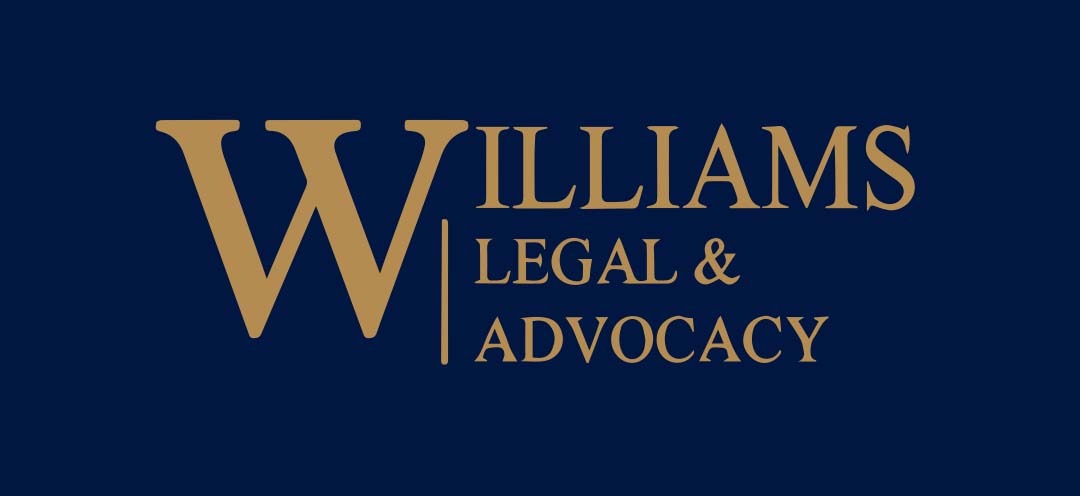In today’s fast-paced and complex world, conflicts are inevitable—whether in business, personal relationships, or legal matters. While litigation remains a common way to resolve disputes, it is often time-consuming, costly, and emotionally draining. Alternative Dispute Resolution (ADR) offers a streamlined, flexible, and efficient way to resolve conflicts outside the traditional courtroom. At Williams Legal Advocacy & Representation (WL&A), we specialize in ADR services to help clients resolve disputes amicably, maintain relationships, and achieve fair outcomes.
What is ADR?
Alternative Dispute Resolution encompasses a variety of methods used to resolve disputes without resorting to litigation. The most common forms of ADR include mediation, arbitration, and negotiation. These processes are designed to be less adversarial, promoting dialogue and collaboration between disputing parties.
ADR is often used in cases involving:
- Workplace disputes
- Landlord-tenant conflicts
- Contract disagreements
- Family matters
- Property and boundary disputes
At WL&A, our experienced professionals tailor ADR processes to meet the unique needs of each case, ensuring a solution-oriented approach that saves time and money.
Benefits of ADR
- Cost-Effectiveness
ADR is significantly more affordable than traditional litigation. By eliminating extensive court fees and lengthy processes, clients can resolve disputes without straining their finances. - Faster Resolution
Litigation can take months or even years to reach a conclusion. ADR methods, such as mediation or arbitration, are typically resolved within weeks or months, allowing parties to move forward more quickly. - Confidentiality
Unlike court cases, which are public records, ADR proceedings are private. This ensures that sensitive information remains confidential, protecting the reputations and interests of all parties involved. - Flexibility
ADR processes can be tailored to the specific needs of the parties. This flexibility allows for creative solutions that may not be available through traditional litigation. - Preservation of Relationships
ADR focuses on collaboration and communication, making it ideal for disputes where maintaining a relationship is important, such as workplace conflicts or landlord-tenant relationships. - Less Stressful
The adversarial nature of litigation can be emotionally taxing. ADR offers a more informal and cooperative setting, reducing stress for all parties.
Types of ADR Services at WL&A
1. Mediation
Mediation is a voluntary process where a neutral third party, the mediator, helps disputing parties communicate effectively and reach a mutually acceptable resolution. The mediator does not make decisions but facilitates discussions and encourages compromise.
- When is Mediation Used?
- Landlord-tenant disputes
- Workplace conflicts
- Family disagreements, such as custody or inheritance issues
- Contract disputes
- Benefits of Mediation:
- Empowers parties to control the outcome
- Encourages open communication
- Often resolves disputes in a single session
- Maintains privacy and confidentiality
At WL&A, our mediators are skilled in managing tense situations and guiding parties toward amicable solutions.
2. Arbitration
In arbitration, a neutral arbitrator listens to both sides of a dispute and makes a decision that can be binding or non-binding, depending on the agreement between the parties. Arbitration is more formal than mediation but less rigid and time-consuming than court trials.
- When is Arbitration Used?
- Commercial disputes
- Employment contract issues
- Real estate and property conflicts
- Disagreements over service or product delivery
- Benefits of Arbitration:
- Faster resolution compared to court proceedings
- Decisions are binding and enforceable
- Parties have more control over selecting the arbitrator
- The process is private and confidential
Our arbitrators at WL&A are highly experienced in ensuring fairness and impartiality while delivering enforceable resolutions.
3. Negotiation
Negotiation is the most informal form of ADR, where parties come together to discuss and resolve their dispute without the involvement of a third party. While it may seem simple, effective negotiation often requires legal guidance to ensure fairness and enforceability.
- When is Negotiation Used?
- Resolving minor disputes
- Amending terms in contracts
- Settling financial disagreements
- Addressing landlord-tenant issues
- Benefits of Negotiation:
- Maximum flexibility for all parties
- Minimal costs compared to other forms of ADR
- Fosters direct communication and understanding
- Can prevent disputes from escalating further
WL&A provides strategic advice during negotiations to ensure our clients achieve outcomes that align with their goals.
ADR in Specific Contexts
1. Landlord-Tenant Disputes
ADR is particularly effective in resolving conflicts between landlords and tenants. Common issues include:
- Non-payment of rent
- Property damage disputes
- Lease violations
At WL&A, we help landlords and tenants mediate disputes and avoid costly evictions or litigation. Through mediation or arbitration, parties can agree on payment plans, repair arrangements, or other mutually beneficial solutions.
2. Workplace Conflicts
Workplace disputes can disrupt productivity and morale. ADR provides a confidential and efficient way to address:
- Employee grievances
- Disputes over promotions or terminations
- Harassment or discrimination claims
WL&A’s mediators create a safe environment for employees and employers to communicate openly, fostering understanding and resolution.
3. Commercial and Contractual Disputes
Businesses often face disputes over contracts, services, or partnerships. ADR offers a faster and more cost-effective way to:
- Resolve breaches of contract
- Negotiate terms in ongoing business relationships
- Address issues with suppliers or customers
By resolving these disputes outside of court, businesses can maintain professional relationships and minimize disruptions.
The ADR Process at WL&A
Step 1: Initial Consultation
We meet with clients to understand their dispute, assess its suitability for ADR, and recommend the best approach.
Step 2: Preparing for ADR
Our team gathers all necessary documents, evidence, and information to build a strong case for our clients.
Step 3: The ADR Session
Whether through mediation, arbitration, or negotiation, we guide the process to ensure fair and productive discussions.
Step 4: Resolution and Follow-Up
Once a resolution is reached, we assist clients with implementing the agreed terms or enforcing arbitration awards.
Why Choose WL&A for ADR?
- Experienced Team: Our mediators and arbitrators have extensive legal and practical experience in resolving disputes across various industries.
- Client-Centered Approach: We prioritize our clients’ goals and work tirelessly to achieve the best outcomes.
- Transparent Pricing: Our ADR services are competitively priced, with no hidden fees.
- Tailored Solutions: We adapt our approach to the specific needs of each case, ensuring personalized and effective resolutions.




